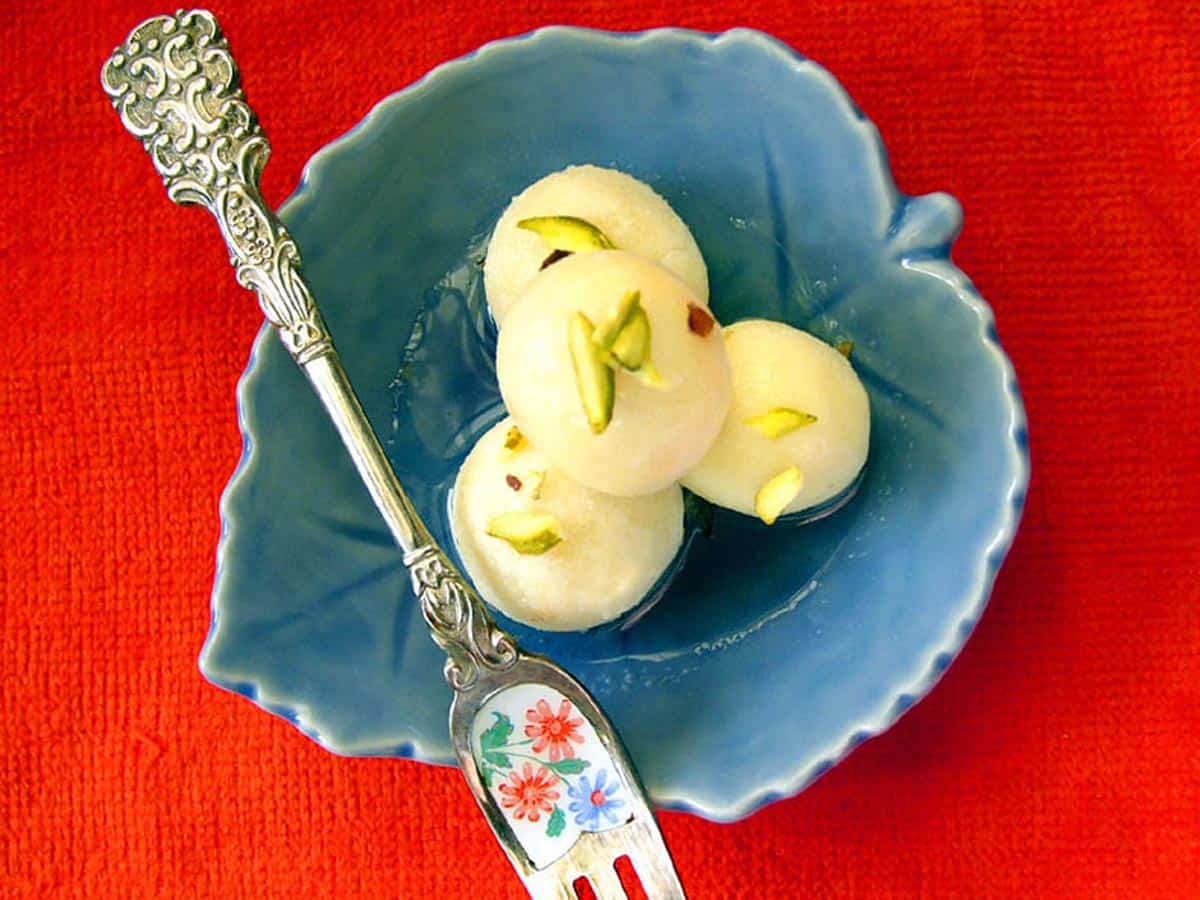
If Hyderabad is famous for its biryani, Kolkata is famous for its sweets. Among many mouth-watering Bengali sweets, one of the most popular ones is the Rasgulla or Rosogolla as the Bengalis call it. But this spongy white ball which has delighted the palate of all Indians has been the subject of a long and bitter feud regarding its origins and evolution.
It is generally known as a Bengali sweet but this notion has been vehemently contested for decades by rasgulla lovers of Odisha. According to food lovers and historians of Odisha, the rasgulla originated in the city of Puri and it evolved from a sweet called Khira Mohana.
The Jagannath temple scholars have provided proof that the tradition of offering rasgulla as bhog to Goddess Laxmi has existed for centuries. Temple scholar Laxmidhar Pujapanda states that written proof of the tradition is there in the Niladri Mahodaya which dates back to the 18th century. He has stated that temple scriptures which are more than 300 years old, provide evidence of the rasgulla offering ritual.
But for many years this claim has been hotly contested by Bengali historians and food lovers. According to nutrition scientist and food historian K.T. Acharya (who hails from Karnataka and therefore his opinion is seen as an unbiased one) there are no references to cheese (including chhena) in India before the 17th century.
The milk-based sweets of the old days were mainly made up of Mawa (thickened milk). It was much later, after the arrival of Portuguese travelers in this region, that cheese-based sweets began to be seen in West Bengal and Odisha. Therefore, the possibility of a cheese-based dish being offered at Jagannath Temple centuries ago is improbable. Moreover, it would be sacrilegious to offer spoiled milk ( because that is what chhena is) to any deity. That is the contention of the Bengali side.
Bengali food experts say that the rasgulla was invented by a man named Nobin Chandra Das in 1868 after several years of experimentation in making a new variety of sweets. The owners of the popular packaged rasgullas which are sold nowadays under the brand name of K C Das rasgullas, are the descendants of Nobin Chandra Das.
An article in WION mentions that Nobin’s father had been a sugar merchant who died a few months before Nobin was born. The family fell on hard times thereafter and Nobin’s childhood was spent in poverty. But he loved sweets himself and also wanted to experiment by making new varieties of sweets. When he finally invented the rasgulla and people began buying it in bucketfuls, his poverty-stricken days suddenly came to an end and he became a rich man almost overnight.
To pay tribute to Nobin and to promote Bengal’s claim of authenticity over the rosogolla, from 2017 the government of West Bengal has been celebrating the Rosogolla Utsob (Rasgulla Utsav) every year on 28 December. Now the ISRO is developing dehydrated rasgullas for Indian astronauts in its future missions to space. Their scientists have found that a 100-gram serving of rasgulla contains 186 calories, out of which about 153 calories come from carbohydrates. It also contains about 4 grams of protein.
But when it came to obtaining GI Status (Geographical Indication status) for the rasgulla, neither West Bengal nor Odisha wanted to give up their claim. Finally, the Registry Office of India decided to honour both claims. In 2017 West Bengal was given GI status for Bengali Rosogolla and after Odisha was able to produce proof of different origins, different textures, and tastes of its product, it too was given the GI tag for Odisha Rosogolla in the year 2019.
Now it is for the customer to judge which is the better and more authentic variety. It’s not easy to understand the difference between the two varieties. Only the discerning rasgulla lover can spot the difference in texture and taste.
At present what is usually available in Hyderabad is the Bengali variety. The future success of both varieties will depend solely upon the taste of the customers. When all is said and done, in any business, especially in the food industry, the customer is the king.



